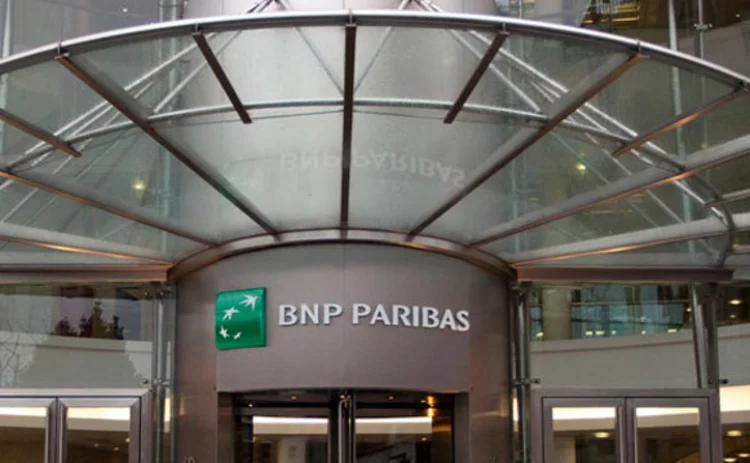
Base metals house of the year: BNP Paribas
Energy Risk Awards 2018: French bank continues China focus while helping European industrials hedge against aluminium price spikes

Though pricing benchmarks are still set in London and New York, the centre of gravity of the world’s base metals market is moving steadily east, with increasing volumes being traded during Asian business hours. Mikko Rusi, BNP Paribas’s Singapore-based global head of metals, is clear that the future of the bank’s base metals business – this year’s base metals house of the year – has a definite Chinese flavour.
“Expanding into China is a key pillar for expanding our global metals activity,” he says. “China is a dominant physical market for non-ferrous and ferrous metals … [and] we expect significant growth in futures trading onshore, and opening up the market through international participation.”
To an extent, Rusi’s team has the wind at their backs. The Chinese government has made no secret of its desire to open up its onshore commodity markets to international participation. Even a lacklustre start to trading for the Shanghai International Energy Exchange (INE) yuan-denominated crude oil future didn’t delay the next move – the opening up of the Dalian-traded iron ore future to foreign investment. Industry observers had expected that China would let the crude future run for six months before making their next step – in the event, they waited barely six weeks.
Rusi calls the gradual opening up of Chinese onshore futures “a very interesting trend”. “We want to participate, of course,” he says. “I guess [the move towards openness] will be successful and I will not be surprised if it expands further in the medium term.” However, he doesn’t expect change to be immediate. Foreign investors were reluctant to enter the INE oil future for various reasons including concerns over physical settlement, storage costs, transaction fees and transparency, all issues that could hinder the wider opening of the market.
Rusi’s caution is based on experience. The key to the China market for BNP Paribas is BNP Paribas China, its wholly-owned foreign invested entity (Wofie), which allows the bank to trade – and indeed make markets – in base and ferrous metals on both the Shanghai and Dalian exchanges. But growing further won’t be easy for BNP Paribas, Rusi says.
China is a dominant physical market for non-ferrous and ferrous metals … [and] we expect significant growth in futures trading onshore, and opening up the market through international participation
Mikko Rusi, BNP Paribas
“There are a number of challenges. In particular, in China market access is not so straightforward. We have been trying to develop that for a few years using our Wofie. We provide hedges referencing international prices to customers on shore. The [biggest] problem is that Chinese banks are not allowed to trade futures (except in precious metals) or physical product. That creates an issue. But it also gets us very much involved in China, it gets us new clients and a deeper understanding of the market. It’s important for us to be present on a risk basis and on a client basis.”
Onshore demand is growing as well, Rusi says. “[Chinese base metal consumers] are not all doing hedging, but the market is becoming more sophisticated so more of them will want to use it.” BNP Paribas is also working on new financial services and products for its existing clients in the onshore market. But the holy grail remains creating what he calls “bridging between the international and the domestic price” – and that’s still a long way off. The firm’s onshore customers are unable to access London Metal Exchange (LME) pricing directly, but the bank can bridge the gap on an ad hoc basis by using over-the-counter trading through its onshore entity; BNP Paribas China trades with Chinese clients and then carries out a back-to-back trade with BNP Paribas, allowing it to book trades in LME-benchmarked commodity derivatives, in either US dollars or yuan with Chinese onshore customers.
But there is much more work to be done here, Rusi says. “[A] key aspect of expansion in China … is innovative ways to connect the onshore and offshore prices – the market requires and needs this, and we are far away [at present] from having a clear connection.”
The global reach that backs up BNP Paribas’s push into the Chinese market – a central focus since it began OTC operations in the country in 2015 – has also underpinned some innovative dealmaking in base metal markets elsewhere in the world. Rusi is particularly proud of the hedge it offered on US aluminium premiums – the spread between US aluminium and the LME metal. In early 2018, US aluminium prices spiked on, among other things, expectations that the Trump administration would impose tariffs on steel and aluminium. BNP Paribas had been focusing on expanding its offer in financially-settled aluminium premium swaps for some years before, and was well placed to coordinate a response, says Rusi.
BNP Paribas rounded up several European clients that were heavy consumers of aluminium (for example packaging firms) and needed to start hedging their 2018 and first-half 2019 consumption, and matched them with physical traders and producers who were willing to take the other side of the trade. The result was a successful hedge in an environment of significant uncertainty over whether tariffs would go ahead, and how aluminium prices would react – an example of the scale and flexibility that BNP’s global reach gives it.
Only users who have a paid subscription or are part of a corporate subscription are able to print or copy content.
To access these options, along with all other subscription benefits, please contact info@risk.net or view our subscription options here: http://subscriptions.risk.net/subscribe
You are currently unable to print this content. Please contact info@risk.net to find out more.
You are currently unable to copy this content. Please contact info@risk.net to find out more.
Copyright Infopro Digital Limited. All rights reserved.
You may share this content using our article tools. Printing this content is for the sole use of the Authorised User (named subscriber), as outlined in our terms and conditions - https://www.infopro-insight.com/terms-conditions/insight-subscriptions/
If you would like to purchase additional rights please email info@risk.net
Copyright Infopro Digital Limited. All rights reserved.
You may share this content using our article tools. Copying this content is for the sole use of the Authorised User (named subscriber), as outlined in our terms and conditions - https://www.infopro-insight.com/terms-conditions/insight-subscriptions/
If you would like to purchase additional rights please email info@risk.net
More on Awards
Joining the dots: banks leverage tech advancements for the future of regulatory reporting
The continued evolution of regulatory frameworks is creating mounting challenges for capital markets firms in achieving comprehensive and cost-effectiveawa compliance reporting. Regnology discusses how firms are starting to use a synthesis of emerging…
Markets Technology Awards 2024 winners' review
Vendors spy opportunity in demystifying and democratising – opening up markets and methods to new users
Derivatives house of the year: JP Morgan
Risk Awards 2024: Response to regional banking crisis went far beyond First Republic
Risk Awards 2024: The winners
JP Morgan wins derivatives house, lifetime award for El Karoui, Barclays wins rates
Best product for capital markets: Murex
Asia Risk Awards 2023
Technology vendor of the year: Murex
Asia Risk Awards 2023
Best structured products support system: Murex
Asia Risk Awards 2023
Energy Risk Asia Awards 2023: the winners
Winning firms demonstrate resiliency and robust risk management amid testing times
Most read
- Top 10 operational risks for 2024
- The American way: a stress-test substitute for Basel’s IRRBB?
- Hidden Road ready for rush hour after FCM approval







